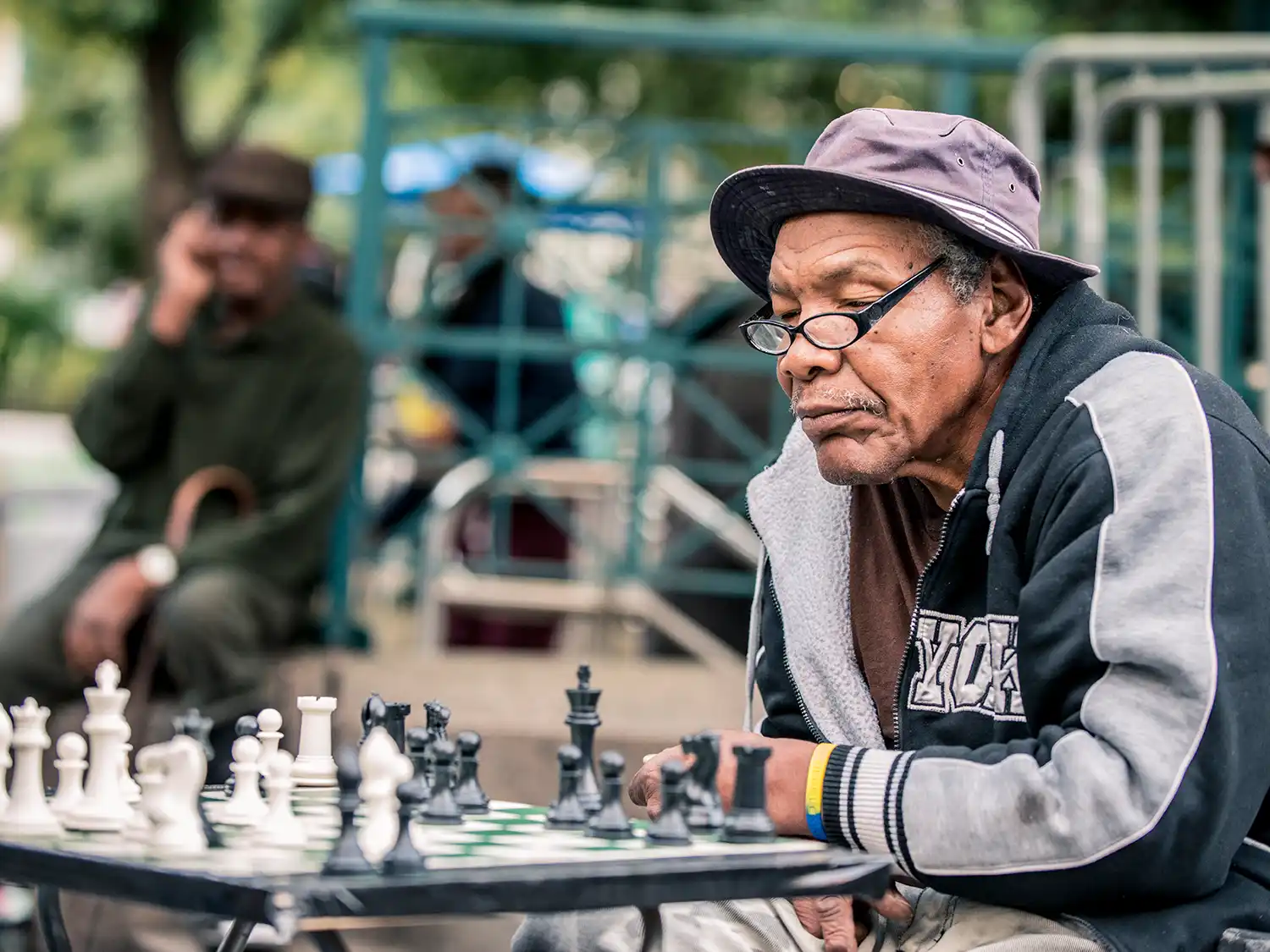Added on 11/11/2024

How chess can protect us against brain aging
Much has been written about the benefits of chess as an educational tool for children. However, one often overlooked aspect of chess is its effectiveness in delaying brain and cognitive decline. The "King of games" has proven to be an excellent activity for maximizing intellectual potential at any age, including in seniors.
The good news is that we're likely to live longer than previous generations. But just as importantly, we want to improve the quality of life during this "extra time" we've been given. Gyms are filled with middle-aged people focused on physical health—it's time we start giving our brains the same care and attention!
In recent decades, chess has gained recognition for its positive impact on cognitive health, particularly in promoting healthy aging and offering protection against conditions like Alzheimer's, memory loss, and dementia. The Journal of Alzheimer's Disease even recommends chess as a proactive measure for middle-aged individuals, suggesting it as an effective tool for preventing overall brain decline.
Here's why chess is such an effective brain-training activity:
It's Fun
Don't underestimate this—having fun is essential for your health! It reduces stress, and it keeps you active and engaged.
Chess is, above anything else, a game. Part of its beauty is that, as a game, it is complex enough to be mentally challenging and make us exercise our mind, but simple enough to be accessible and enjoyable. Many people start playing chess at an advanced age. It is never too late to learn!
It's All-Encompassing
Any intellectual activity will have a positive impact and deserves to be encouraged. But, from all the options available, chess stands out as the most well-rounded, because it puts to work many skills that stimulate different brain areas:
- Calculation
- Spatial visualization
- Creativity
- Concentration
- Pattern recognition
- Long term memory
- Short term memory
This combination makes chess the ultimate brain workout. In comparison, reading, solving sudoku, or completing crosswords is like going to the gym and only building your biceps!
It is Social…
You need two for tango, and the same applies to chess. Taking up the game can encourage older adults to enroll in a chess club, make new friends, or—perhaps best of all—play games with their grandchildren. Chess fosters connections across generations.
… But it can also be enjoyed at home
If someone's physical condition makes going out difficult, chess remains an option. That's why we are here! Chess can be enjoyed in multiple ways: from playing games online, solving puzzles, reading books, or watching videos about the game. You can explore a universe of endless possibilities from your couch!
The Science Behind It
Effortful mental activity produces and strengthens synaptic connections and the neurogenesis process, stimulating the growth of dendrites, the bodies that send out signals from the brain's neuron cells. With more dendrites, neural communication within the brain improves and becomes faster. This is why playing chess helps the brain build "cognitive reserve." This reserve is crucial in slowing down the symptoms of dementia and Alzheimer's.
Good Stress vs. Bad Stress
Chess induces small amounts of "good" stress, just enough to improve neuroplasticity. A 2011 study titled Revitalizing the Aged Brain by Desai AK, published in Medical Clinics of North America, supports this idea, highlighting how this moderate stress can benefit the brain.
A comprehensive study in the Journal of Environmental Research and Public Health reviewed 413 scientific papers and found that seniors who engaged in games reduced their risk of cognitive decline by 75%, those who played musical instruments saw a 64% reduction, and crossword puzzle enthusiasts had a 38% lowered risk.
Your move! Find an opponent, play against our bots, or incorporate a few minutes of puzzle practice into your daily routine. Whatever you choose, start building your brain muscle today!
